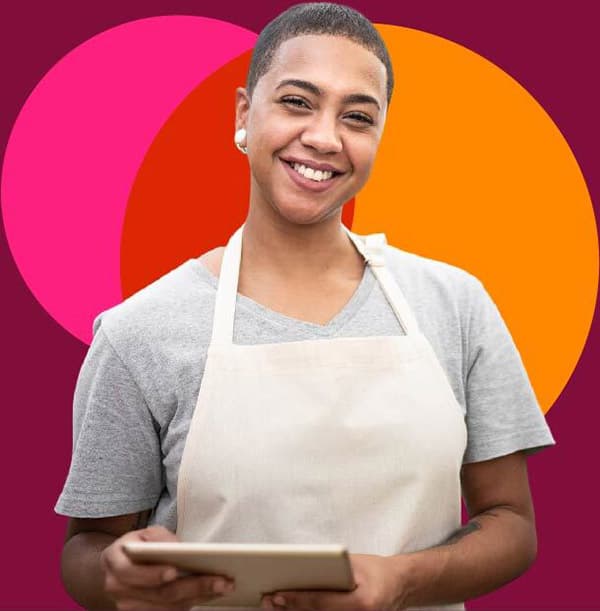July 1, 2020
Retail is a tough business. (Understatement of the year, right?) Consumers are swimming in a sea of seemingly endless options, all competing for their limited attention and disposable income. What’s the secret to business success? Your existing customers.
It’s five times more expensive to acquire a new customer than keep a current one. And, current customers spend 67% more than new ones.
If you’re focused on customer data, you have the inside skinny on your active customers. You know who they are, which location they visit, how often they buy fuel, when they need a caffeine fix (weekday mornings) and a donut (Friday afternoons). Focus on the details available in your customer database and purchase history and encourage them to expand the relationship.
Earn their loyalty every day with the zeal and effort you had at the beginning of your courtship. Jeff Hassman, chief marketing officer at Excentus says, “You can deliver highly personalized content about things people care about, which makes the connection between the consumer and retailer much, much more powerful.” Wooing new customers is an expensive proposition; invest resources more precisely given what you already know; date the ones you brought to the dance.
As reported in a 2020 Loyalty Marketing Trend report, U.S. consumers seek an exclusive customer experience. They want personalization and promotions tailored to them.
Building on your existing loyal customer base can reap big dividends. C-store loyalty members are reported to spend more than non-members – on average 29 percent more per visit. Armed with these insights, convenience stores are “leaning in” to charm their existing customer base. Mathematically speaking, it makes cents… literally.
Customers:
· come back to buy products they like, especially consumable items
· prefer buying from businesses that “get them” (56% of customers stay loyal to these organizations)
· share favorite businesses by word of mouth – “Hey, check out the amazing discount my favorite company just gave me!”
· spend more money as rewards get better – $10 back on next purchase with every $50 spent
· prefer special treatment and may even pay a fee to earn more product or higher discounts, order online or skip the checkout line
Today’s consumers are looking for not only convenience, but also distinct experiences that make spending their hard earned cash with you worthwhile. Here are five ways to win with consumers:
o Maverick, Inc. – Ernie Harker (executive director of CREATE) believes simple and straightforward is better. After a false start launching his “monster” loyalty program (spent six months to promote just one benefit), he realized customers latch onto the first message they understand, and that’s all the program is known for regardless of how many times employees try to explain all of the benefits.
o Lou Perrine’s Gas & Grocery program – owner Anthony Perrine says “people sign up for it because we give them cash back – they have to use the cash here in the store; but cash is the thing that incentivizes them. They accumulate points and the points earn cash. There’s not a lot of heavy lifting involved either such as having to go online. You spend money and we give it back to you.”
o Casey’s Rewards – Using a mobile app at the center of the program allows customers to order pizza, get access to special offers/discounts, and track points/purchases. But customers who prefer less tech can just as easily enter their phone number to earn rewards in-store, at the pump or when they order in advance.
o Fleet fuel program – Circle K: Fleet managers can generate reports from data capture that provide info such as quantity of fuel purchased, if other items were purchased, or even set automatic transaction limits.
o Tobacco Club – Circle K: Appealing to a specific customer group, the Circle K’s segmented and tactical approach of their Tobacco Club features reward points for smokeless and smoking tobacco, introduces new or innovative products, and extends special offers tailored to draw these customers inside stores from the fuel pumps.
o 7Rewards – 7-Eleven: Program updates now include key periods where customers can earn points exponentially per purchase, are encouraged to visit more often during point streak promotions, accumulate points to redeem for higher value rewards.
The goal of a loyalty program should extend beyond a one-time repeat visit. According to Retail Dive, “The goal is to create a connection so strong that customers want to keep giving up their business.” Among the sea of competitors and alternative choices, high quality of service and valued customer recommendations can ensure your business is their preferred dance partner long term.
And, don’t forget that your loyalty program can only work if your employees know why it’s important to the business, the role they play in its success and how they should talk about benefits with customers. Without this key piece of the communication puzzle, your employees won’t encourage your customers to sign up in-store and won’t remind them about it at check-out.
If you’re struggling to make your loyalty program effective or want to make sure you roll a new program out effectively, reach out. We would love to show you how we can dramatically improve your loyalty results through in-store communication.
Recent Posts
Company News
Zippy is Officially Here!
Retail Communications
Summer Camp 2024 Award Winners!
Company News
How To Convince Your Boss to Send You to Summer Camp
Employee Engagement
How Culture Fuels O’Reilly Auto Parts
Company News
Zipline Achieves Record-Breaking Customer Satisfaction Scores in 2023 Survey
Industry Trends
The Best Presentation I Saw at NRF Had Me Cheering By Myself in a Room Full of Strangers
Employee Engagement
Everything You Need to Know about Learning Journeys
Industry Trends
New Tech I Saw at NRF That May Be a Waste of Money
Expert Interviews
NRF 2024 Day 3
Industry Trends
NRF 2024 Day 2
